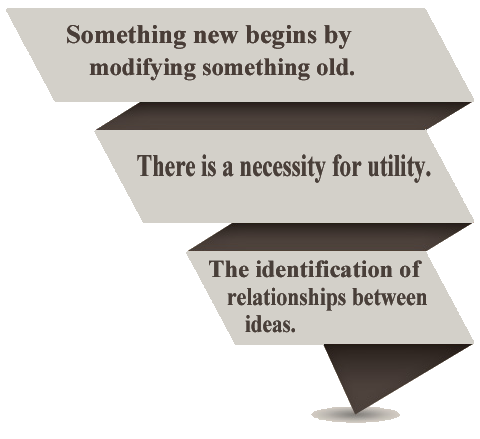
National Association of Christian Ministers How to Series: Ministry
By Michael Mooney, NACM Exec. Elder
Often Christian ministers tend to think of creativity as something “passive” that sort of just comes to them. Clergymen with this thought process tend to see themselves as being at the mercy of something inspiring them toward creative thinking. They approach it re-actively as opposed to taking thoughtful and purposeful steps to invoke creative thoughts.
With this in mind, the National Association of Christian Ministers thought it might help ministers all over the world by posting this article from it’s Theological Ministry Course.
God is the original creator! Yet, it does not seem that He places Himself at the mercy of inspirational whims. Rather, He chooses to be creative, and then takes action. The same seems to be true of humans, in that God made Humans in His image; therefore, it follows that we hold the potential to proactively entreat creativity.
Creativity Defined: #
In human terms, creativity is typically understood as an act or expression of an idea that results in the transformation of a present domain into something useful in new ways (Csikszentmihalyi).
Following this definition, creativity is also something that is:
#
God holds at least two types of creative abilities: #
- He is able to create “something” from “nothing (Gen 1:1).
- He is able to combine something with something to generate something new (Gen 2:21-22).
Arguably, humans do not seem to hold the ability to create something from nothing. However, we are able to create something new from something old. This leads to a consideration of the processes involved in creative expression.
3 Factors of Creativity #
Lau & Chan identify three factors that tend to be present during the expression of creativity:
- Something new begins by modifying something old.
- There is a necessity for utility.
- The identification of relationships between ideas.
New Ideas Tend to Stem from the Modification of Old Ones.
- Solomon reminds us, “Whatever has happened before will happen again. Whatever has been done before will be done again. There is nothing new under the sun. Can you say that anything is new? It has already been here long before us” (Ecc 1:9-10 GW).
In other words, creativity must hold its foundation on ideas of the past in order to reach for new possibilities.
#
Creativity Must Be Useful #
Just because an idea may be new does not make it useful. Creativity must result in a new appreciation, value, perspective, or use for something. In this way it is interconnected to the past, and all that surrounds the present. Interestingly, Jesus does not seem to ever add any new creations to the earth during His ministry. Rather, he uses what is already present and improves upon those resources to solve problems. For an example consider when he turned water into wine.
Creativity is Developed by Noticing Connections Between Ideas #
When ideas are merged, new insights are born and traditional thinking (which often leads to the same old conclusions) is broken. For example, consider how there are a series of events in Hebrews 11:1-6 that develop new perspectives on the subject of faith.
Common Factors Among Creative People #
They are:
- Energetic, but also restful,
- Smart but naïve,
- Playful but well behaved,
- Humble but yet proud at the same time.
Conclusion: #
God is the original creator. He made humans in His image. It follows that we are creative like He is. We seem to have an innate necessity toward self expression. Therefore, it only makes sense that we call upon the creator to develop our creativity! Especially as members of the clergy in ministry.
References
Lau, Joe & Chan, Jonathan (2012) Critical Thinking: Three Basic Principles
Csikszentmihalyi, Mihaly. Creativity – Flow and the Psychology of Discovery and Invention






